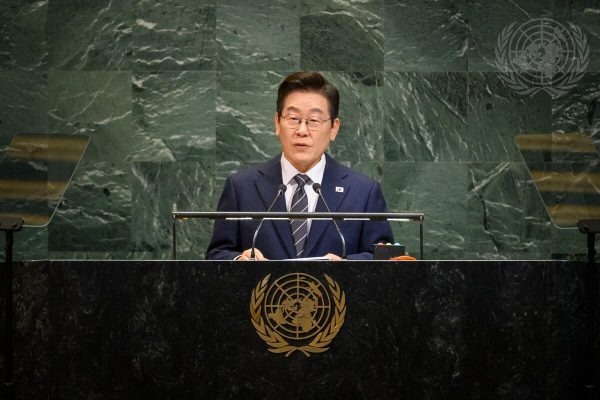Copyright ghanamma

Fidelity Bank Ghana has concluded its second GreenTech Innovation Challenge (GTIC), awarding GH¢1 million in grants to 16 climate-smart enterprises that are tackling critical agricultural and environmental challenges across the country. The pitch event at the University of Ghana’s West Africa Centre for Crop Improvement brought together innovators, investors, and ecosystem partners in what’s become one of Ghana’s most significant private sector commitments to agricultural technology. This year’s challenge attracted 25 enterprises competing for funding, with judges eventually selecting 16 outstanding businesses addressing everything from precision agriculture to post-harvest management. AgriCentric Ventures topped the competition with a GH¢200,000 grant, followed by Peellnnova Limited Company at GH¢100,000 and Danny Machinery securing GH¢70,000. The remaining 13 enterprises each received GH¢50,000 to help scale their solutions. What makes this initiative particularly compelling is the comprehensive support package that extends well beyond the initial funding. Innohub, Fidelity Bank’s implementing partner, will provide all 16 winners with six months of intensive business incubation and acceleration services, designed to transform promising concepts into commercially viable operations. It’s the kind of handholding that many early-stage ventures desperately need but rarely receive. The focus on agriculture isn’t accidental. Ghana’s agricultural sector, currently valued at approximately $15.2 billion with projected annual growth of 7.01%, remains the backbone of the national economy yet faces mounting pressures from climate volatility. Smallholder farmers continue wrestling with unpredictable weather patterns, significant post-harvest losses, and limited access to modern farming technologies and financial services. Nana Yaa Afriyie Ofori-Koree, who heads Partnerships, Sustainability and Corporate Social Responsibility (CSR) at Fidelity Bank Ghana, emphasized why the bank views this as more than corporate philanthropy. She described agriculture as the cornerstone of Ghana’s economy while noting its extreme vulnerability to climate shocks, positioning the GreenTech Innovation Challenge as a strategic investment in national food security and economic resilience. The partnership model between Fidelity Bank and Innohub represents something worth paying attention to. While many banks shy away from early-stage ventures due to perceived risk, Fidelity is deliberately investing in unproven concepts and idea-stage businesses. It’s a calculated bet that today’s promising agricultural technology solutions could become tomorrow’s market leaders, provided they receive the right support at critical development stages. Mami Serwaa Amoakohene, Chief of Staff at Innohub, highlighted how the collaboration demonstrates what becomes possible when private and development sectors align their efforts. After successfully completing the first edition in 2024, this year’s challenge has attracted even stronger ideas and deeper collaborations, with clearer pathways for winners to scale their operations. The broader context makes this initiative particularly timely. Connected agriculture markets across Africa are projected to surge from $2.9 billion to $9.87 billion between 2025 and 2031, as digital platforms revolutionize how smallholder farmers access markets, finance, and advisory services. Ghana’s agricultural entrepreneurs are positioning themselves at this intersection of traditional farming and technological transformation. The first GTIC cohort, which received GH¢1.4 million in funding for 17 entrepreneurs, generated over GH¢13 million in revenue, created 49 new jobs, and attracted an additional GH¢597,000 in external funding. Those numbers suggest the programme is delivering measurable returns beyond the initial grant investments. This second edition’s exclusive focus on early-stage businesses reflects lessons learned from the inaugural challenge. Rather than spreading resources across multiple business stages, Fidelity Bank and Innohub are concentrating on identifying disruptive concepts, accelerating early validation, and building collaborative teams from the ground up. The strategy addresses what many African entrepreneurs describe as the “valley of death” between concept and commercialization, where brilliant ideas often die simply because founders lack resources to test, refine, and scale their solutions. The 16 winning enterprises are tackling diverse challenges including precision agriculture technologies that enhance crop monitoring and resource management, post-harvest management innovations to reduce losses and add value, digital financial services tailored for rural farming communities, climate-smart agriculture techniques that build resilience, and value chain optimization across multiple agricultural sectors. For Ghana’s agricultural sector, programmes like GTIC represent a potential shift in how young people view farming. By celebrating and funding agricultural innovators, there’s an implicit message that farming can be a technology-driven opportunity rather than a traditional occupation that younger generations might otherwise avoid. Whether this initiative helps attract fresh talent to agriculture at scale remains to be seen, but the early indicators look promising. Through the GreenTech Innovation Challenge, Fidelity Bank isn’t simply writing checks and hoping for the best. The bank is actively building a community that places sustainability at the centre of business growth, attempting to generate scalable impact that extends well beyond the 16 enterprises receiving funding. As climate change continues reshaping agricultural realities across Africa, initiatives like this one might prove instrumental in determining whether Ghana’s farming sector adapts successfully or struggles to maintain productivity.



